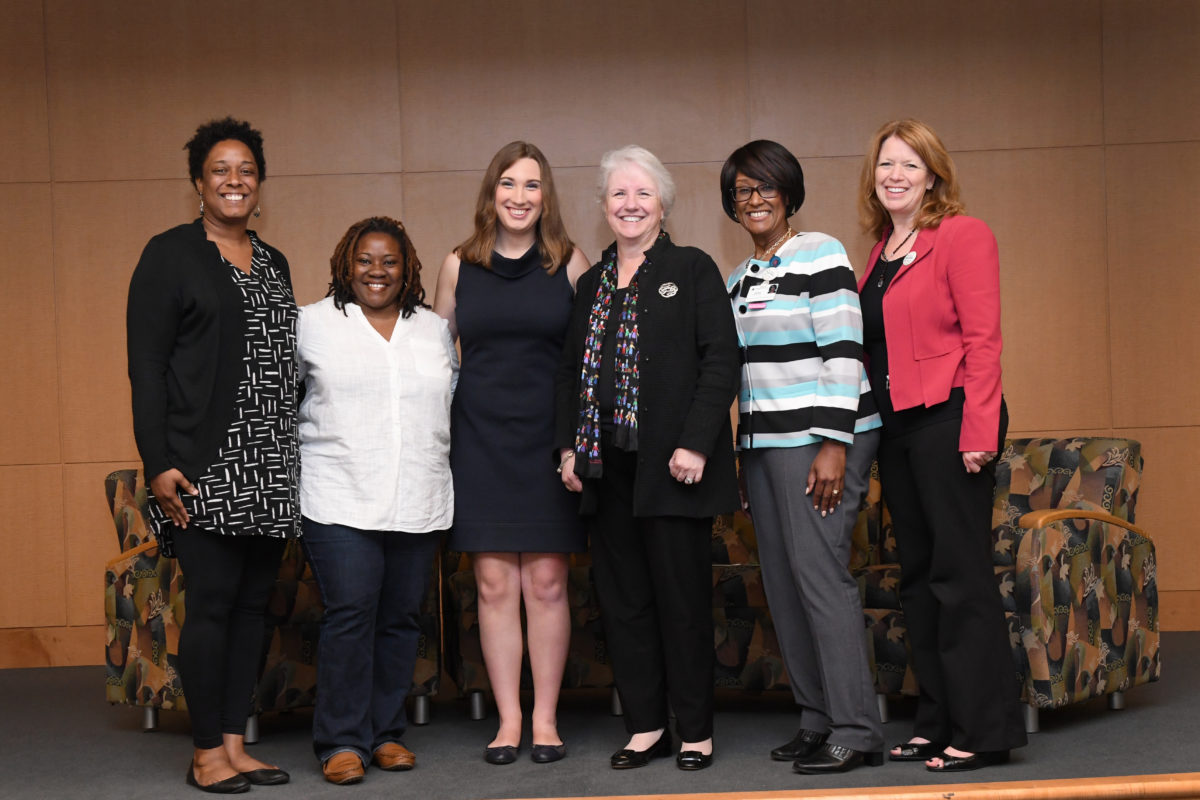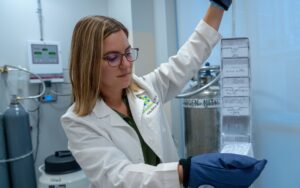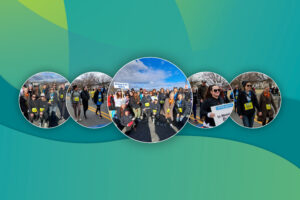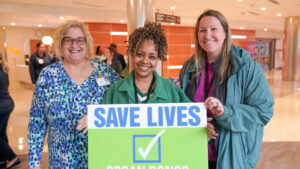Two Lesbian, Gay, Bisexual, Transgender and Queer Pride Month events at Christiana Care, June 27, highlighted the importance of respecting and serving the needs of LGBTQ people in health care and in the community.
Christiana Care is a national leader in nurturing equality, with Christiana and Wilmington hospitals earning the 2017 Leader in LGBTQ Healthcare Equality designation, receiving a perfect score on the national Healthcare Equality Index from the Human Rights Campaign Foundation.
Christiana Care’s inaugural “Pride in Our Work” Health Symposium focused on improving care for LGBTQ patients. The event was the brainchild of Justin Glasgow, M.D., Ph.D., a Christiana Care hospitalist and researcher in the Value Institute.
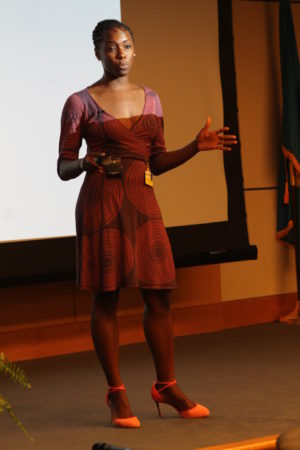
Nyasha George, M.D., a primary care physician at Wilmington Hospital, presented a case study to set up the first topic, “Welcoming All Patients.”
Through real-life examples, Dr. George demonstrated how the current process of collecting patient information fails transgendered patients at multiple touchpoints. There are missed opportunities to disclose sex, gender, sexual orientation, preferred name and preferred pronoun. This sends a message that the patient “may not be welcomed here.”
The desired solution is to provide universal protocols and structured opportunities to facilitate disclosure of sex, gender, sexual orientation, preferred name and preferred pronouns using examples from the National LGBT Health Education Center.
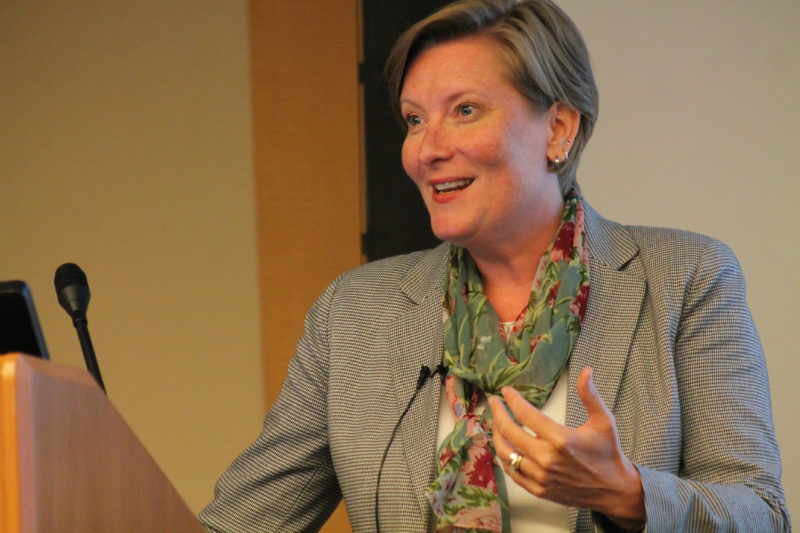
Linda Hawkins, M.D., co-director of the Gender & Sexuality Development Clinic at the Children’s Hospital of Philadelphia, shared the journey at CHOP and its “Promise of Partnership.”
Dr. Hawkins provided startling statistics, based on research from the Human Rights Campaign in 2012, noting that 29 percent of lesbian, gay and bisexual parents and 73 percent of transgendered parents responded yes when asked “Do you think you or your child would be treated differently by your health care provider if you were open about your identity?”
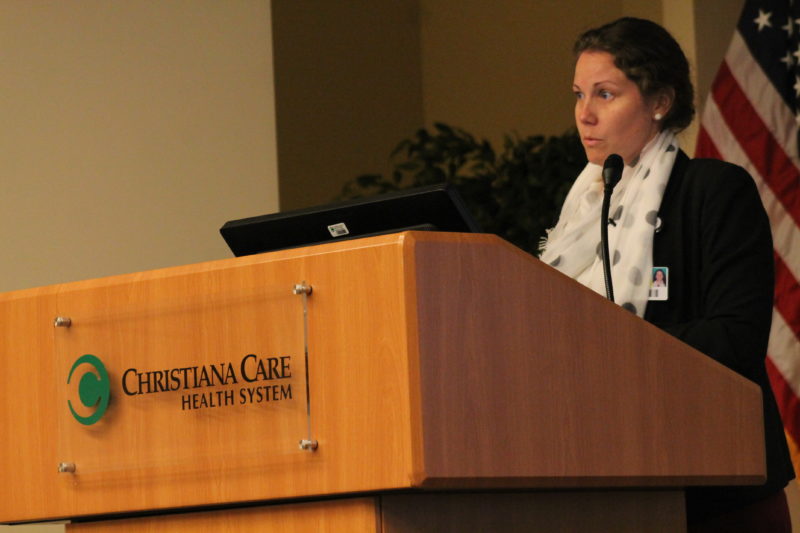
The Healthy People 2020 goal is to improve the health, safety and well-being of lesbian, gay, bisexual and transgender individuals. Dr. Hawkins shared key points on creating an inclusive experience from policy to practice, looking at staff LGBT competence, assessing the space, looking at logistics, building open dialogue and external promotion.
Among her recommendations:
- Apologize, then do it right. Do not try to excuse the mistake away.
- Check for unconscious bias in all interactions. What assumptions are we making about patients and families?
- Pay attention to the climate of the organization for employees. It is difficult for employees who don’t feel that they can be open to tell their patients to be themselves.
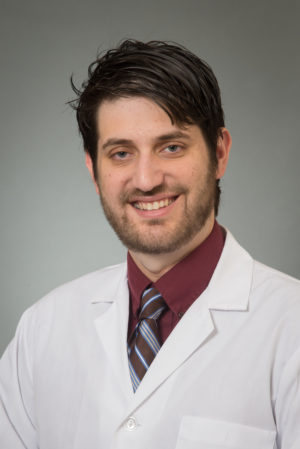
On the topic of “Creating a System of Care,” Eric Halpern, M.D., and Anna Filip, M.D., presented case studies.
Dr. Halpern, an internist in the Christiana Care Medical Group and an expert in HIV, shared the complexity of STD testing in the LGBTQ community.
Dr. Filip, a family medicine physician and assistant residency director at Christiana Care, said high percentages of LGBTQ patients have negative interactions when accessing care or do not access care out of fear. She noted it can take more than two hours for LGBTQ patients from Delaware who rely on public transportation to access certain specific services in Philadelphia or Maryland.
“As a leader in LGBTQ health care equality, we understand the importance of serving the unique health care needs of lesbian, gay, bisexual and transgender people in our community,” said Bettina Tweardy Riveros, chief health equity officer.
Sarah McBride discusses true equality for transgender people
Sarah McBride is a daughter, a sister and a widow. Her accomplishments include serving as student body president at American University and working as an intern at the White House.
She also is a transgender woman, the first openly transgender person to address a political convention, speaking at the 2016 Democratic National Convention in Philadelphia.
In her talk at Christiana Care, McBride’s topic was “true allyship,” — moving beyond the symbols of safety pins and rainbows to press for equality for LGBTQ people in legal rights, social acceptance and health care.
“We have seen incredible progress in Delaware and across the country, but if LGBTQ people don’t achieve true equality our work is not finished,” McBride said. “We cannot be patient. We must show radical impatience.”
McBride was born in 1990 at Christiana Hospital, with an assigned sex of male. But that gender designation was not her authentic self.
“I remember laying in my bed at night, praying that I would wake up and be me,” she recalled. “It’s a constant feeling of homesickness.”
McBride came out to her family on Christmas Day 2011 and at college the following May. Both announcements were met with “love, kindness and affirmation,” she said.
She fell in love with Andy Cray, a transgender man and activist she met at a White House reception. Soon after, Cray was diagnosed with cancer. He died four days after their wedding.
McBride said Cray received high-quality care and was treated with respect throughout his illness.
“But throughout his battle, we remembered that 70 percent of transgender people suffer some sort of discrimination in health care,” she said.
That resonated with Susan Greig, BSW, a social worker who attended the event.
“Her speech was invigorating and informative, making me leave the room at the end wanting to do my piece to effect change,” Greig said.
In the discussion that followed, McBride was joined by three panelists: Drewry Nash Fennell, Esq., chief officer of Strategic Communication and Development at Christiana Care; Naomi Washington-Leapheart, faith work director for the National LGBTQ Task Force; and her wife Kentina Washington-Leapheart, a former hospital chaplain who is program director for religious justice and sexuality education at the Religious Institute.
McBride’s parents supported Fennell when she came out in 1990s. But others were slower to accept or understand, and Fennell saves a place in her heart for those who have yet to make that step.
“Keep your heart open to people who are not totally with you,” Fennell said. “Leave them the space to move toward you.”
Naomi Washington-Leapheart said people who want to be true allies should not expect others to bear the burden of educating them about the LGBTQ community. They also must be willing to take on risk and discomfort.
“If allyship takes up too much space, it no longer is allyship,” she said. “True allyship is about shared risk and danger so that other lives can be centered.”
Kentina Washington-Leapheart noted that individuals are multifaceted beyond their sexuality.
“I’m not just an LGBTQ person. I am a woman of color, a mother, a minister,” she said. “I am not going to debate my humanity. I am human. I exist.”
McBride urged attendees to stand up for love, and to listen closely to others so that people can be addressed by the name and gender they identify with.
“When we go out of this room, we should follow not the Golden Rule but the ‘platinum rule.’ You should treat others the way they want to be treated,” she said.
